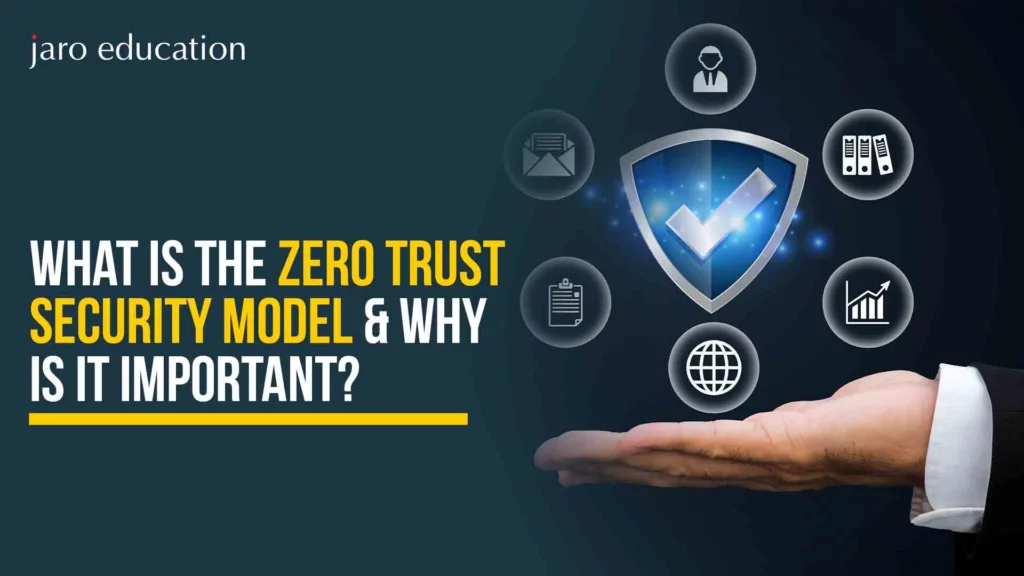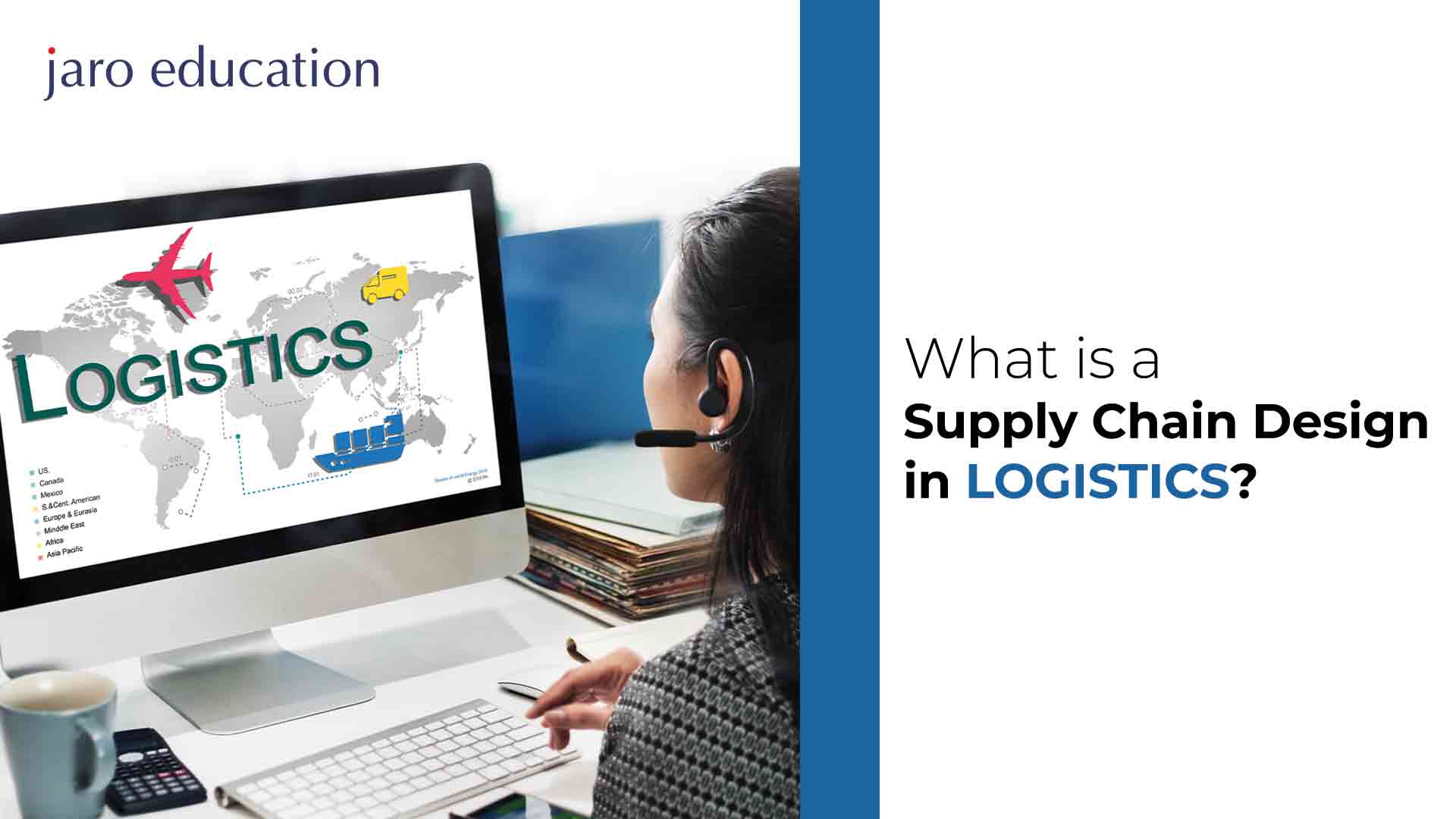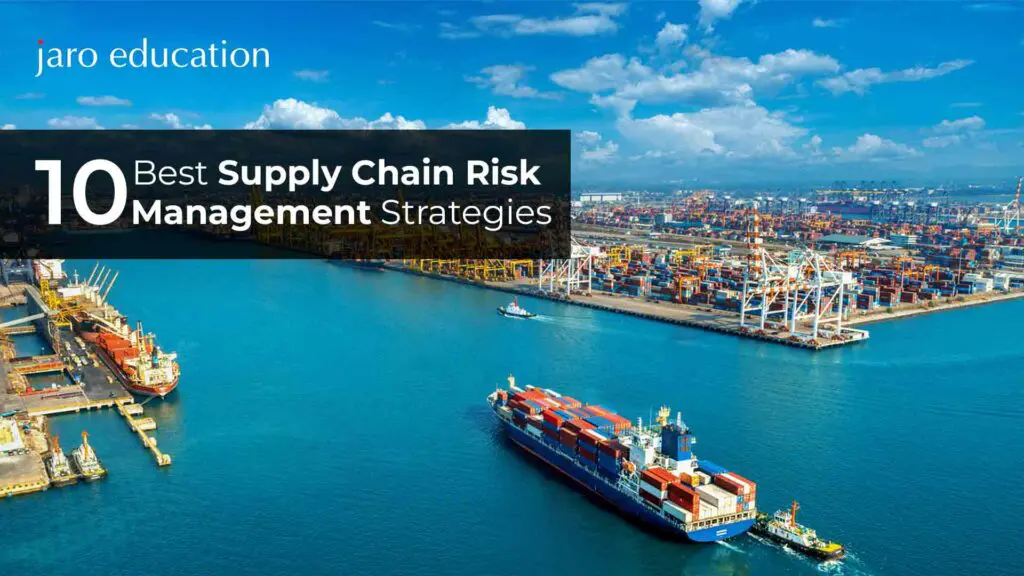How to Advance Your Career with Supply Chain Knowledge?
Table of Contents

- jaro education
- 23, December 2023
- 11:00 am
Supply chain management (SCM) refers to the planning, execution, and supervision of the supply chain from the point of origin to the customer. SCM is vital in an organization because it influences the quality, cost, and delivery of the organization’s products and services. SCM also has a significant impact on the environment, society, and economy.
Supply chain careers are various, profitable, and demanding. The U.S. Bureau of Labor Statistics predicts that the employment of logisticians who look into the chain of supply will increase by 18% between 2022 and 2032, more than the average for all occupations. Additionally, in May 2020, the median annual wage for logisticians was $76,270, which is above the median for all workers.
You need the right knowledge, skills, and qualifications if you are to pursue or advance your career as a supply chain manager. This blog will discuss some benefits of supply chain management, career options related to SCM, and ways to strengthen SCM skills and credentials.
Benefits of Having Supply Chain Knowledge
Having supply chain knowledge can help you in many ways, such as:
Improving your performance and productivity
Understanding the principles and practices of SCM can improve the efficiency and effectiveness of your work processes, reduce waste and errors, and enhance customer satisfaction and loyalty.
Improving your ability to solve problems and make sound decisions
With a holistic and strategic view of the supply chain, you are in a position to identify and analyze the reasons for problems, compare alternative solutions, implement the most appropriate measures, and monitor results.
Offering you a chance to improve your career and prospects
Knowledge of the supply chain enables you to show that you understand what you are doing at current or prospective employers, and you deserve higher roles and responsibilities. Besides, you can create a network and work in partnership with other people from different functions and industries.
Promotes social and environmental wellness
Through supply chain knowledge, one can incorporate sustainability and corporate social responsibility to work and reduce the impact of the activities on the environment and society.
Career Paths in Supply Chain Management
Supply chain careers involve sourcing, procurement, inventory management, transportation, warehousing, distribution, delivery, and finally, customer services, among others. Some of the common career paths in supply chain management are:
Supply Chain Analyst
Supply chain analysts collect, process, and interpret data relating to the supply chain. This includes analyzing the supply chain performance and providing useful insights and recommendations on how to improve it. Supply chain analysts may employ a number of tools, including spreadsheets, databases, statistical software, and data visualization, to carry out different tasks.
Supply Chain Planner
The functions of a supply chain planner include plans to plan and cohesion of the supply chain operations and activities, with customers’ expectations in mind. The roles of a supply chain planner can include utilizing different techniques and models like forecasting, optimization, simulations, as well as scenarios.
Supply Chain Manager
A supply chain manager supervises the supply chain management operations together with its performance to ensure that the supply chain fits into the broader organizational goals and objectives. Supply chain managers utilize a host of proficiencies to carry out certain roles, such as leadership, communication, negotiation, and risk management.
Ways to Enhance Your Supply Chain Knowledge with Certifications
To make your supply chain career journey successful knowledge and experience are pivotal. You must acquire the needed knowledge and practical ability and prove your capability to your employers and colleagues at the workplace. Some of the ways you can enhance your supply chain knowledge with certifications are:
Pursuing a degree or diploma in SCM
Having a degree or a diploma in SCM will give you elaborate knowledge about the different ideas and theories of SCM that may equip you to play several roles and functions at the supply line. They feature a range of varied programs, including associate, bachelor, master, or doctoral degrees, or diplomas and certificates depending on what you want to achieve in school.
Taking online courses or MOOCs in SCM
If you would like to have flexibility and convenience in learning the basics and practicality of SCM and constantly upgrade your awareness of what is trending in this industry, then you should consider online courses or MOOCs (massive open online courses) in SCM. There are various topics and course formats that you may select, ranging from introductory level, intermediate, or advanced courses, among others, or specialization or micro-credential courses, whichever suits your interests and needs.
Participation in an executive education program in SCM
An executive education course in SCM is a practical and relevant way to broaden your SCM horizon and take your career to the next level. There are many types of programs that you can choose from, such as short-term and long-term programs or general or specific programs, which all depend on your objectives and preferences.
For instance, Executive Certificate Program in Supply Chain Analytics and Management from IIM Mumbai is one of the best executive education programs for a managerial role. The essence of this program is based on the fundamental and contemporary issues in the area of SCM, which include supply chain strategy, design, optimization, analytics, digitization, and sustainability. In addition, it allows you to study with IIM Mumbai’s faculty, communicate with peers and specialists from the industry, and receive a certificate from IIM Mumbai.
Tips to Succeed in Your Supply Chain Career
After acquiring the supply chain’s knowledge and qualifications, it is also necessary to utilize them productively and dynamically while at work. Moreover, one will have to make continual progress with one’s performance and productivity levels. Here are some tips to help you succeed in your career path supply chain management:

*edoxi.com
Stay updated and curious
The supply chain keeps changing as new technologies, innovations, and challenges keep on emerging each time. The world is ever-changing. Therefore, you must be updated and curious even with what is being studied daily and know how to use those changes to your benefit. This is possible through online magazines, webinars, blogs, communities, forums, and massive open online courses (MOOCs).
Communicate and collaborate
The supply chain consists of a complex and interconnected system that comprises more than suppliers, customers, partners, and regulators. Therefore, you must work well with them and ensure their trust and rapport, ensuring a strong relationship. This involves communicating directly, clarifying your points through easy-to-understand language, listening actively and empathically, offering feedback and asking for opinions whenever required, and solving issues constructively.
Be proactive and innovative
The supply chain is an unpredictable place where one has to predict and react to different threats and chances. Act, take a lead, and exercise your authority over your assigned work, including projects. The first one is through setting SMART goals based on specific, measurable, achievable, relevant, and time-bound parameters. The second step involves prioritization of work, management of time, and available resources at hand. Thirdly, an organization should implement solutions aimed at improvement.
Conclusion
Supply chain knowledge is a precious asset that can help you to do a better job, to be a better problem-solver and decision-maker, to create more chances for your career, and to improve the social and environmental good. In order for you to succeed or climb up the ladder in SCM, you require the right credentials and the right education and training that will give you the experience and the knowledge and prove that you are an expert and credible individual to your employers and associates. You may consider pursuing a degree in SCM or a diploma in supply chain management or take online courses or MOOCs in SCM or an executive education program in SCM, such as the Executive Certificate Program in Supply Chain Analytics and Management by IIM Mumbai. As such, you should prepare yourself for the current and forthcoming challenges and prospects in the supply chain realm to realize your aspirations and professional goals. To learn more about the program, contact Jaro Education.









